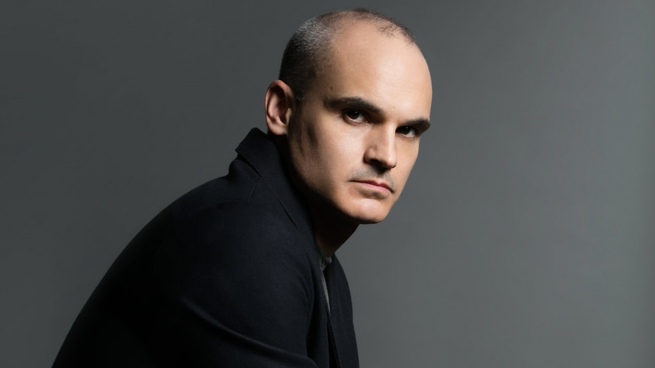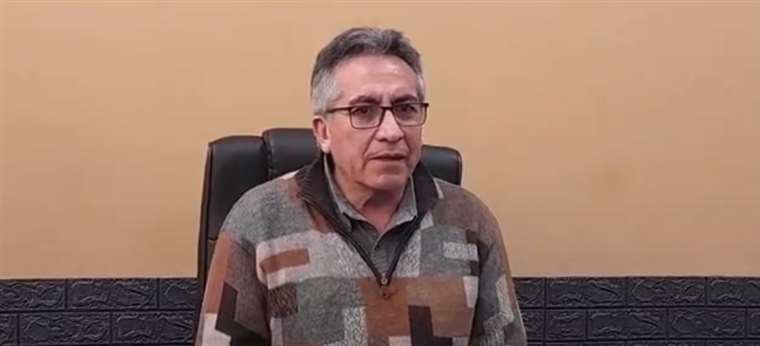With a plot about trust, money and power that has communicating vessels with the idea of fiction as a structure in itself, the novel “Trust” by Argentine writer Hernán Díazwho has lived in the United States for years, was chosen as one of the thirteen best works of fiction in the English language in the long list of the prestigious Booker Prize, which will announce the short list in September, while in October it will announce a only winning work.
Hernán Díaz was born in Buenos Aires in 1973. He went into exile with his family when he was very young and spent his childhood in Sweden. He now lives in the United States, where is a professor at Columbia University. He writes in English, published an academic book on Borges and the only fiction translated into Spanish of his is “A lo far” (Impedimenta), which earned him several awards, such as the Saroyan International Prize, the Cabell Award, the Prix Page America, the New American Voices Award, and was a finalist for the PEN/Faulkner Award for Best Fiction.
“Trust”, the novel that has just chosen the Booker Prize as one of the thirteen most outstanding in the English language, it will be published in Spanish by the Anagrama publishing house in March 2023 and in this way it will reach editions in 25 languages.
For the jury in charge of the award, the book has “a dazzling intelligence behind this novel, which challenges us to rethink everything we know about the institutions on which nations are built and the narratives with which the stories are told. Cunning, sophisticated, insistently questioning. Diaz writes with confidence, determined to steal all our certainties.”
In its translation into Spanish “trust” means confidence. And this is a novel about trust, about money and finances, with protagonists as a Wall Street tycoon and a daughter of eccentric aristocrats, who have amassed a great fortune and cannot explain that accumulation. But at what cost does a tycoon achieve that capital? Different versions of the distribution of power and the manipulation of reality thus make up this kind of puzzle of characters and literary genres.
“The only thing that sustains money is trust. There is no material link between a ticket and its value. Monetary value comes only from a series of conventions that we have all decided to accept. Money has, then, a structure similar to that of fiction. It is a fiction that we all believe in. In which we all trust,” Díaz told Télam a few days ago.

There, precisely, lies “one of the crucial aspects of the book: how fiction can shape and determine reality. I am particularly interested in fictions that are accepted as historical facts, which, of course, have direct political consequences. And almost all narratives around capital have this fictional and highly ideological dimension”.
Díaz writes in English, publishes in English and lives in the United States, that is to say, he is inserted in that culture, although he has not stopped interacting with Argentina – he was visiting at the beginning of July. Asked about the vacancy of the topic of money in literature, he assured that it is “curious” that money is absent from the North American literary canon and if it does appear, it does so adjacently, by satellite. “There is very little fiction that deals with money itself and the process of capital accumulation. On the one hand, there is an absolute obsession with money; on the other, it is a subject that is not talked about. It is a huge taboo in the culture American,” he considered.
It was also recently news that “Trust” will be adapted into a miniseries format by American actress and producer Kate Winslet -which will also take on a leading role- and will air on HBO. In an interview with Télam, Díaz had said that they are just beginning to talk “seriously” about how to approach the adaptation where he also has a co-producer role, and that they estimate that the premiere will be between 2024 and 2025.
But Diaz’s novel did not appear because of the stir brought about by the name Kate Winslet. It already had a good harvest of readers in its original language and very good reviews, to the point that the well-known newspaper The New York Times defined it as “four novels in one” due to its unique stylistic structure. What’s more: before the British actress, the novel had already received several production companies that were interested in acquiring the film rights. Finally, Díaz decided on this HBO initiative.
The other selected of the Booker Prize 2022
The Booker Prize is one of the most outstanding awards in the English language and every year recognizes fiction published in the UK and Ireland. First, a long list of thirteen candidate books is announced, then in September the shortlist is announced, which is reduced to six works, and finally, in mid-October, a single winning work is announced, which receives a prize of 50,000 sterling pounds.
But beyond the economic recognition, the Booker Prize has a global potential to drive readings, right from the start when the extensive list of shortlisted books is presented. This same award has its international version, the International Booker Prize, which honors translated works and this year he had Claudia Piñeiro with the English translation of “Elena Sabe” in his short selection.
Another of the novels that make up the Booker Prize longlist and was published in Spanish by the Alfaguara label is “Ay, William!”, by the American narrator Elizabeth Strout, where she takes up one of her emblematic characters, that of the writer Lucy Barton -who debuted in 2016 with “My name is Lucy Barton” and then resumed in “Everything is possible”- and in this story she narrates the journey she undertakes with her ex-husband after discovering a family secret that, among other issues, raises the mystery unfathomable that represents otherness.
The jury highlights that no one writes “the inner life like Strout does” with a writing of “meticulous observation, full of deep psychological insight”, while ensuring that her character Lucy Barton is already an immortal of literature “fragile, damaged, unraveled, vulnerable and best of all, ordinary, like all of us.”
Strout had already won the Pulitzer in 2009 for “Olive Kitteridge”, which gave his works a great flight with translations around the world. “It is true that I have recognition and I value it but I have never really finished believing this. I suppose that is why I continue to do the work that I want to do, that is, I have a sense of responsibility towards my readers. I always write for them and that has not changed,” he said at a press conference regarding its translation into Spanish. “I have no memories of myself as a non-writer: I always remember myself writing,” she also said at the time.
Another of the books with local circulation is “Little things like that”, by the Irish Claire Keegan. For the jury it is a story of “bravery” set in an Irish community “that denies its main secret”. “Small Things Like These”, in its original language, also has a “beautiful, economical and elegant structure, dense with moral themes”. So inexpensive is it, at 116 pages in English, that it becomes the shortest work ever recognized at the award in its entire history.
Translated in our country by Jorge Fondebrider and published by Eterna Cadencia in 2021 -which had previously published “Antartida” and “Three lights”- the book tells the story of a man who works selling coal and wood and suddenly finds himself involved in a situation of terror, which investigates a case that is related to reality: the Laundries of the Magdalenas, institutions of the Catholic Church that, with the complicity of the Irish State, housed girls and women, whom they hid, imprisoned, enslaved and they even killed their babies.
The complete list of the Booker Prize 2022, which will cut this list in half in September, is also made up of “The Colony”, by Irish director Audrey Magee; Selby Wynn Schwartz’s “After Sappho”; NoViolet Bulawayo’s “Glory”; “Maps of Our Spectacular Bodies,” by Maddie Mortimer; “Case Study,” by Graeme Macrae Burnet; Percival Everett’s “The Trees”; Shehan Karunatilaka’s “The Seven Moons of Maali Almeida”; “Booth” by Karen Joy Fowler.
Curiously, the other two authors who are missing to complete the 13 chosen for this 2022 edition of the Booker Prize are writers of opposite ages, the youngest and the oldest who share the stage on a longlist: on the one hand, Leila Mottley, American born in 2003 , 20 years old, distinguished for his debut feature “Nightcrawling”, and on the other, Alan Garner, renowned writer born in Cheshire in 1934, with a long history of works and awards, chosen here for his latest fiction “Treacle Walker”.


















